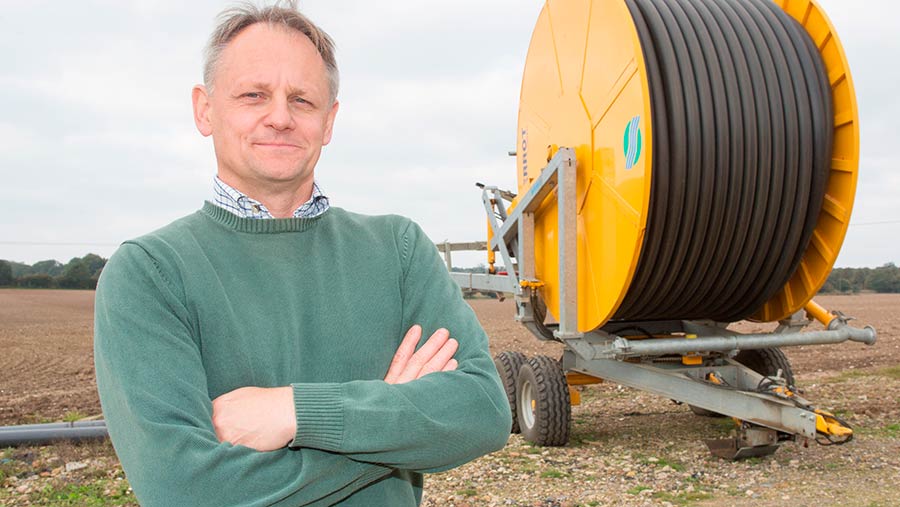Farmer Focus: Dry October may hit irrigation water reserves
 © Tim Scrivener
© Tim Scrivener While I am aware that those of you in the north and west of the country are going to hate me for commenting on this, the fact is that here in the dry lands of the east, we had less than an inch (25mm) of rain during the whole of October.
It certainly gave us an easy run into finishing cereal drilling and harvesting root crops. Indeed, creating a seed-bed on our heaviest land was quite a challenge, with the power harrow having to be deployed for the first time in quite a while.
See also: Read more from our Arable Farmer Focus writers
Water shortage
Now with all of the cereals emerged and herbicides applied, thoughts turn to the lack of rain, the low river flows and what effect that is potentially going to have on water availability for irrigation next year.
After two dry winters in a row, throw in a couple of average summers and the risk of water shortage increases.
Thankfully, it would appear that the message is getting through to certain parties, and at last thought is being given to interconnectivity between water companies’ independent mains and more strategic thinking on water storage.
Let’s hope that systems that are fit for purpose can be developed to see us into the second part of the 21st century. That’s not just for farming, but more importantly to keep the taps running in our homes.
By way of an early warning of the increased pressures on this limited resource, our groundwater abstraction licence from the borehole has been renewed for a limited period of only seven years, with abstraction pressures on our valuable aquifer quoted as the reason.
This is a clear result of the demands created not only by crop irrigation, but more specifically by keeping the growing population satisfied.
After the harvest
On a completely different issue, I hope that now harvest is over and all of the invoices are in, you are all busy calculating the cost of production of your harvested crops. This is not only to ensure that you are fit for the future, but to be certain that you are maximising your assets and making the most of what you and your farm can produce.
Have you thought very carefully about whether you need to be working more closely with others or whether you really are spreading those not-so-fixed costs?
Farmers will adapt.
Andrew Blenkiron manages the 4,400ha Euston Estate, south of Thetford. Principal farm enterprises are combinable and root crops, including sugar beet. In addition the estate supports let land, sheep, outdoor pigs, poultry, suckler cows, horses and stewardship.
